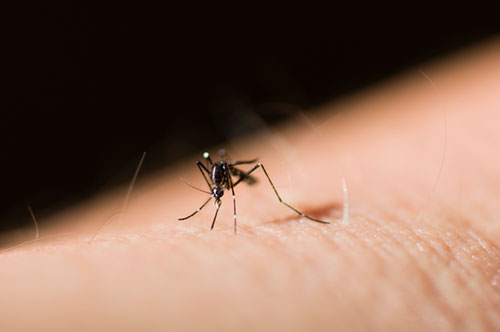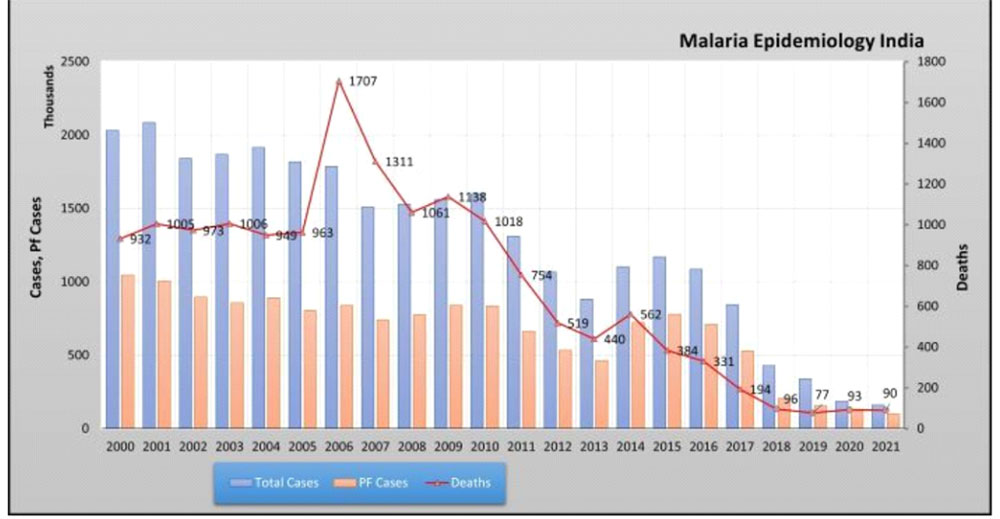A possibly lethal disease, malaria spreads when the infected female Anopheles mosquito bites a person. Plasmodium vivax, Plasmodium falciparum, Plasmodium malariae and Plasmodium ovale are the parasites responsible for malaria.

According to the NVBDCP, malaria is prevalent in quite a few parts of our country. A whopping 95% of the Indian population resides in areas that are endemic to malaria. Of the reported cases of malaria, 80% live in tribal, mountainous and difficult to access areas.
Disease Burden
India has to an extent managed to control malaria and the disease prevalence is diminishing.
Nearly 70 percent of malaria cases in India are contributed by five states i.e., Odisha (36%), Chhattisgarh (12%), Jharkhand (9%), Madhya Pradesh (9%) and Maharashtra (5%).

What Are the Symptoms of Malaria?
Malaria can be classified as uncomplicated and complicated based on clinical and certain lab parameters. Fever with chills and rigor is the most common symptom. Fever lasts for 30 minutes to 1 hour, relieving with a bout of sweating. There may be a specific pattern of fever depending upon the infecting species (fever every 24 hours in falciparum malaria, fever every 48 hours in vivax malaria, etc.). Other symptoms include headache, vomiting, arthralgia, myalgia and anorexia.
Altered consciousness, seizures, anemia, hypoglycaemia (low blood sugar), respiratory distress, black urine, low blood pressure, jaundice and deranged renal functions are signs of complicated malaria.
Is Malaria Treatable?
Malaria is a readily treatable infection. Like with many diseases, it is crucial that malaria be identified and treated early. This will not only reduce mortality but will also reduce transmission. Artemisinin-based combination therapy (ACT) is the most effective in treating malaria.
Treatment with oral antimalarial drugs is sufficient for uncomplicated vivax malaria. Falciparum malaria and complicated malaria require admission and IV antimalarial drugs and other supportive treatments.
Is Malaria Preventable?
Malaria is a vector borne disease. Hence vector control (in this case mosquito control) is the mainstay for the prevention of malaria.
- Avoid unnecessary exposure from dusk to dawn.
- Covering exposed skin with full sleeved clothing, using mosquito repellents (cream, vape, sprays, etc.).
- Long-lasting insecticide treated mosquito nets (LLINs) and indoor residual spraying (IRS) with insecticide is advised.
- Prevention of mosquito breeding sites (covering or eliminating stagnant water source at home and surroundings), use of larvicidal sprays.
What Are the Steps Taken by the Government to Prevent Malaria?
The Government of India has developed a National Framework for Malaria Elimination (2016-2030) and a National Strategic Plan with the aim to eliminate malaria (zero indigenous cases).

Dr. Y. Dayanandan
Consultant General Medicine
Kauvery Hospital Chennai

